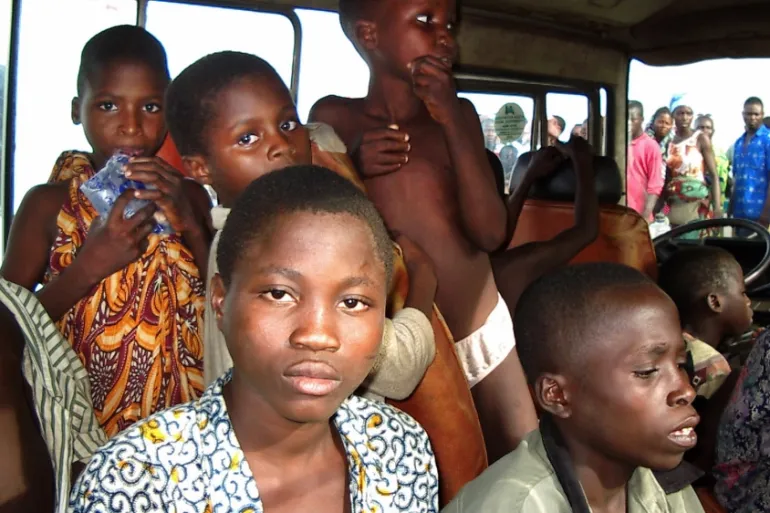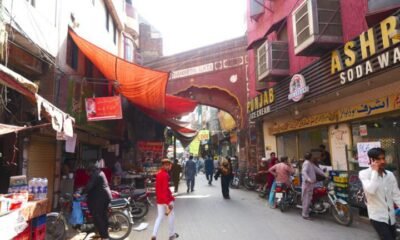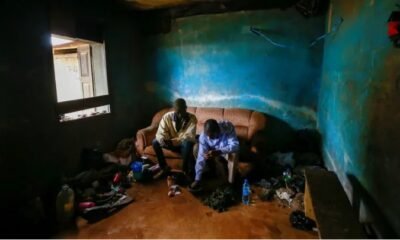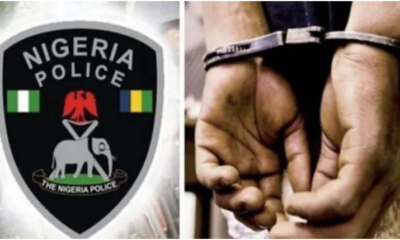News
Traumatic Childhood Experiences Of A Nigerian Boy

By Bukolami Shadare-Ajayi
Growing up should be a joyful adventure filled with love, protection, and learning. But for many of us, childhood was

Bukolami Shadare-Ajayi
Some of us grew up with wounds that don’t bleed but scar deeply…very deeply!In Nigeria, trauma is not just a word; it’s a reality lived daily by children in homes, schools, streets, and even places of worship.
Many children are subjected to physical abuse in the name of discipline, emotional neglect due to absent or struggling parents, and sexual abuse that is often silenced by shame and stigma.
Others are forced into child labour, hawking under the hot sun when they should be in a classroom. Some witness domestic violence or are displaced by conflicts and insecurity in some regions.
For instance, David, a childhood friend was about 7 years old when he lost his mother. The Mother’s death meant the loss of his only source of love and safety because his father had died before David was born.
With no one to cater for him around, he was sent to live with his uncle around Yaba area of Lagos. It was in the home of a man the family believed would care for him but Instead, David walked into a home where cruelty became his daily bread.He was beaten for the smallest mistakes and treated as less than human.
The abuse soon became worse, as his uncle began to violate him sexually, a horror David could neither understand nor escape.
READ ALSO: Mother Attempts Taking Own Life, 2 Children’s Over Debt
READ ALSO: Addiction: Factors That Predispose Individual To Substance Abuse
There was no one to talk to, no listening ear, no helping hand, I mean he was just a child!
Fear kept him silent, shame kept him hidden, and the pain became part of his everyday life. Childhood for David was not about learning or playing — it was about surviving.
And Surviving was all he did!
Today, David is a husband and a father, but the shadows of that childhood still follows him about.
The trust he lost has been hard to rebuild and the scars he carries are not just on his body, but deep in his soul.
How he had the courage to tell me all these ordeal at our Re-union get together in December 2024.
I still can’t fathom, and daily as I live I appreciate God for the childhood I had, but I understood that many children aren’t as blessed or lucky as I was.
During the heart to heart conversation we had, David a 43 year old father recounted how he still struggles with anxiety, finds it difficult to trust, even at work—even those who mean well.
My dear Friend David’s story is a painful reminder that when abuse is left unchecked, it shapes the life of a child long into adulthood.
The effects of trauma are not always visible at first. Some children withdraw and become unusually quiet. Others grow up angry, aggressive, or numb to pain.
It affects their self-esteem, academic performance, and ability to form healthy relationships later in life. If not addressed, childhood trauma can follow them into adulthood like an invisible shadow just as David still hasn’t walked past his traumatic childhood.
According to UNICEF Nigeria, “approximately 6 out of 10 children in Nigeria experience some form of violence before the age of 18—whether physical, emotional, or sexual.”
More disturbing is the fact that only a fraction of them ever receive the help they need to recover.
These aren’t just numbers; they are real lives, real pain, and a national emergency.
But for me, I believe it doesn’t have to be this way.
Families must learn positive parenting methods that nurture rather than harm.
Schools must provide safe spaces and train teachers to recognise signs of trauma.
The government must enforce child protection laws and invest in mental health services for children.
READ ALSO: Infidelity: After Father Set Wife, Children On Fire…
READ ALSO: Oriyomi Hamzat Hospitalised After Ibadan Stampede That Claimed 35 Children Lives
And we, as a society, must speak up for every child whose voice has been silenced.
Childhood is meant to be protected, not stolen. Every Nigerian child deserves to be seen, heard, and safe.
As UNICEF reminds us, “Every child has the right to grow up in a safe and nurturing environment—free from fear, harm, and abuse.”
Let us remember: when we heal a child, we heal the future.



























